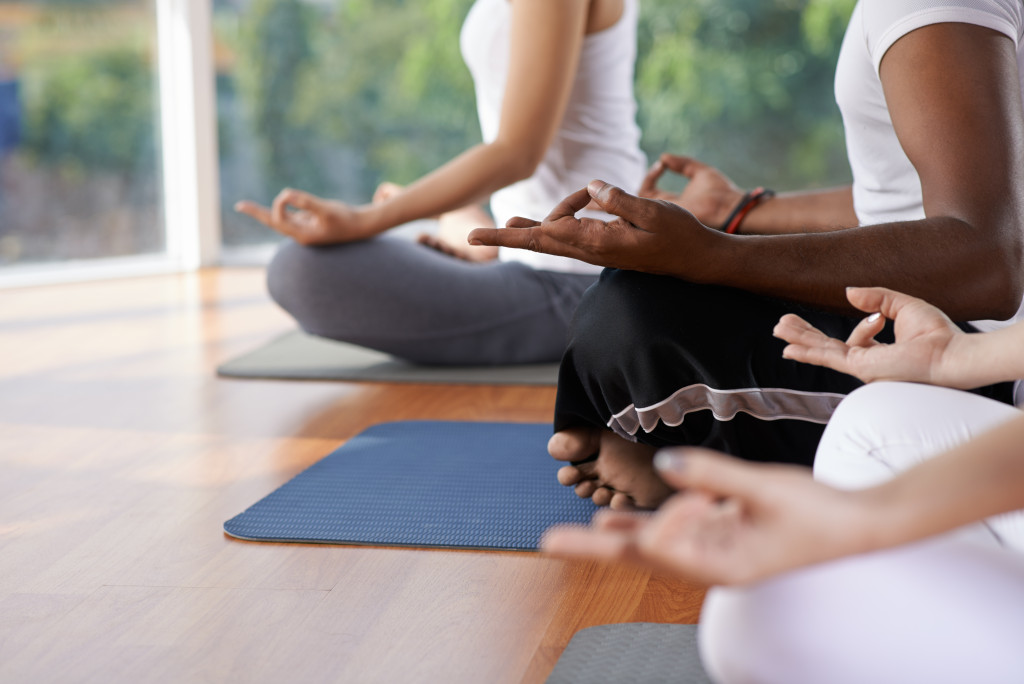- Mindfulness is an ancient practice that has been used for centuries to help manage stress and anxiety.
- Studies have found that practicing mindfulness has a positive impact on both physical and mental health.
- Set aside time for regular practice, create a journal, use meditation apps, and focus on being mindful without distraction or judgement.
- With these tips, you should have everything you need to practice mindfulness today and reap its benefits.
Mindfulness is an ancient practice used for centuries to help people manage stress and anxiety. Today, it is gaining more attention as research continues to show its positive impacts on physical and mental health. Here are a few tips to help you learn how to practice mindfulness and get started reaping its benefits.
Understand What Mindfulness Is
Mindfulness is the act of paying attention to your thoughts, feelings, and emotions without any judgment or criticism. It’s about being present at the moment and allowing yourself to be open to whatever may come up. In other words, it’s about being aware of what’s happening in your mind and body without trying to control or change it.
In fact, it’s an ancient practice that has been used for centuries to help people manage stress and anxiety. It is believed to have its roots in Eastern philosophy, with the earliest records of it found in the Buddhist teachings of India over 2500 years ago. The Chinese Taoists also had their own form of mindfulness practice, known as ‘Ch’an.’

Benefits of Mindfulness
Studies have found that practicing mindfulness can help reduce stress, improve mood, boost your immune system and even increase your physical well-being. Additionally, research has shown that mindfulness can also help to improve cognitive performance and memory recall.
Mental Health
Mindfulness has been shown to have profound effects on our mental health. Here are some of the ways it helps:
- Reduces anxiety and depression
- Promotes self-compassion and acceptance
- Enhances emotional regulation skills
- improves resilience to stress
Physical Health
Although mindfulness is commonly associated with mental health, its benefits also span the physical body. Here’s how:
- Reduces chronic pain symptoms
- Reduces stress and improves mood
- Boosts the immune system
- Improves cognitive performance and memory recall
- Improves sleep quality
- Increases overall physical well-being

Tips on Practicing Mindfulness
Mindfulness is an ancient practice used for centuries to help people manage stress and anxiety. It’s a powerful tool for improving physical and mental health, but it can be difficult to learn how to use it effectively. Fortunately, you can follow some simple tips to get the most out of your mindfulness practice.
Set Aside Time for Practice
In order to reap the benefits of mindfulness, you have to set aside time for regular practice. This doesn’t have to be long; even 10 minutes can make a difference! Start by scheduling a few minutes each day to sit quietly with yourself and observe your thoughts and feelings without judgment or criticism.
Consider setting aside time for longer mindfulness sessions on the weekends if that works better for your schedule. For example, you can take online tai chi sessions if you don’t have the time to travel. You can also go on a nature walk during your free time.
Create a Journal
Writing down your thoughts and feelings helps you remember them so that when you practice mindfulness, it is easier to think about what happened and how it made you feel. It also enables you to be aware of your mind and body without trying to change or control it.
Choose a Meditation App
Meditation apps are great tools for learning how to practice mindfulness. Many offer guided meditation sessions to help you focus on your breath and be mindful of the present moment. You can also use these apps to track your progress and set reminders for yourself. Some examples of meditation apps are Headspace, Calm, and Buddhify.
Focus on Your Breath
Focusing on your breath is one of the simplest ways to begin practicing mindfulness. Every time you take a deep breath in, focus entirely on how it feels as the air enters your lungs and then slowly exhales out again. As thoughts arise—and they will—acknowledge them without judging them before gently redirecting your attention to your breath instead. Doing this regularly helps train your brain so that, eventually, you can stay focused on your breath even when something distracting pops up in your mind.
Practicing mindfulness can have an incredible impact on both physical and mental wellbeing if done correctly over time. The key is consistency; set aside some dedicated time each day or week to focus solely on being mindful without distraction or judgment so that its benefits become ingrained in everyday life over time.
With these tips, you should be well-equipped with everything you need to get started practicing mindfulness today!






